…this used to be all rock, and now it's sand, and then, one day, it's going to be dust, and then... well I don't even know what comes after dust. — Where the Wild Things Are (Jonze/Sendak)
The other night, my friend Franc and I went to see Lucinda Williams perform. Lucinda had a stroke a couple years ago, so she couldn’t play her guitar, and she sat down for some of the show. When she stood, her legs wanted to move and dance more than they can right now. But her voice was as strong as ever, beautiful and slanted, singing about pain and lamentation and wonder. And her black jeans and leather jacket and high-tops— all still there.
I was trapped in the middle of the aisle, flanked by a dozen old people who were our age or so. During Lucinda’s banter and long stories, I shifted around and noted the best route to flee, just in case. Franc’s back hurt from the stiff theater seat. Stroke or no stroke, we’ve all aged. It’s still strange when it happens to you.
I met Franc 30 years ago in a songwriting group started by my roommate’s girlfriend, Barbara. There were four of us: me, Franc, Barbara, and Alexis. We sat around the table with our acoustic guitars and took turns playing our ideas. I was nervous, so I focused a lot on Barbara’s cat, Flea. Months later, I wrote a song, “She’s Wasting You” about beautiful Barbara breaking my sweet roommate’s heart, and that made things a bit awkward. Good song, though.
Franc was funny, friendly, and too pretty to get used to right away. She walked in wearing vintage pants with yellow and orange swirls and a Bucks County sweatshirt. I really liked all three of my new songwriting friends, but there was something different with Franc. It was like I recognized her.
For the next couple months she and I did early friendship things like going into stores the other person liked, swapping clothes, confessing things over drinks, and asking questions about photos on the refrigerator. One new-friend afternoon, we were eating Mexican food when intrusive thoughts and middle school doubts hit me–boom– like a small, certain bird flying into a window. Was I pushing this whole thing and Franc was just going along? We’d joked once that I was courting her. Should I get the check and get out of there?
I did a quick tally of initiations and reciprocities. She asked me if something was wrong and I told her. She said oh my god and apologized and explained she’d just never had anyone insist on being friends before– didn’t think anyone would like her enough right away like that.
The friendship relaxed into itself after that. We learned about the ways we were alike, and ways we weren’t. Most of the time, we found refuge in the similarities and humor in the differences. We kept learning. We learned all kinds of things.
For example, Franc pointed out that I sometimes made snap judgements just to get the decision-making over with. Also, I learned to fold my t-shirts in rows in the drawer so I can see them all instead of digging in the pile like trying to harvest a single potato. She made me cards that were these little amazing paintings (I still have them all in a Welcome Back Kotter lunchbox). She took me to Bucks County to meet her five excellent and complicated sisters and funny handsome dad. And her tricky mom who made her own yogurt and granola in the age of Pop Tarts, nursed six babies, sewed all their clothes, and was a nurse like my mom. Maybe not so tricky–just tired.
Meanwhile I taught Franc to return shoes without feeling bad, and how to ride bikes fast in the woods weaving your way through rocks and roots. How to pack a suitcase quickly and leave early on Fridays if you can. And that when you move apartments, you don’t have to pack your spices gingerly in a shoebox. You can just line them up on the kitchen table and slide them all at once into a paper grocery bag. Sometimes, I helped her remember that people often don’t know what they’re doing, especially the ones who are absolutely certain they do.
We both formed bands–both with us writing the songs and being out front with guitars and singing– but much different kinds of music, which was good. We each had our own lane, our own separate scarcity of resources from which to try to draw. At least in this case.
***
I’d last seen Lucinda Williams 22 years ago in New Haven. I was 7 months pregnant with my first baby, my daughter Abby. It was September, 2001 and Franc’s band was opening for Lucinda, which was a huge deal.
When Lucinda herself called that summer, Franc thought it was me pranking her from the next room. Once that was cleared up, Lucinda told Franc how much she loved her songs. She asked Franc to open for her in New Haven. A few days later, Lucinda’s manager called and asked Franc to do the whole tour. Sometimes dreams do come true he’d said to her.
I have a photo of Franc in a vintage sleeveless dress. She’s bent over a piece of paper on a wooden table with a pen in her mouth while another friend sits nearby on a couch holding a guitar. It was the day the manager called about Franc’s dreams coming true. A bunch of us—friends and a couple sisters— were staying in a big rented cabin on a lake in Plymouth, MA, so we were there when she got that call.
In the photo she looks all business. In the background, you can see five or six of us, including me with my big belly and baggy eyes. We’re laughing, and everything is magic hour—honey-colored light coming in the windows just so. There’s an abandoned Boggle game on the table. You can see strips of paper with our scribbled lists of three and four-letter words, and one extra long list with bigger words that Rori made because he thought you could use any letters at all.
After last week’s Lucinda show, while Franc and I waited for our Uber on Tremont Street, I asked her if I’d been jealous back then about her big Lucinda news and the rest of it. My band at the time was going nowhere. We kept appearing on “best undiscovered bands in Boston” lists, year after year. I already knew the answer.
You were, she said. A bit. But I remember you just wanted to tell me and be done with it. That was all before I learned— through trial and error, and time and loss—the power of just being in a friend’s corner. That their happiness is your own, and it has to be that simple.
We all drove down to New Haven for Franc’s big break. Images of that day and the day after come to me saturated in the kind of rich, after-process color they use to dye old black and white postcards. September and its strange light and confusing cues. Warm skin, melancholy, cool air, vague nostalgia, beginnings, and also the instinct to start hunkering down. I spent a lot of the ride to New Haven trying to adjust the seatbelt around my belly while my friend Sue drove and tended to things sweetly and brusquely like she did.
The theater was packed, and Franc was wonderful. Lucinda told the audience in her sleepy twang, Ah’m a Franc Graham connnnnvert! Franc’s dad was there, and all her sisters, along with our gang of about a dozen friends– a collective that has converged, drifted, re-grouped, and cemented itself into family over the years.
Between Franc’s songs, our friend John O’Connor shouted “Frank-eeeeeeeeeeeeee!” He was a big guy with a big heart and a big mouth—an older brother figure, her erstwhile boss, and a denizen of green politics, earnestness and influence. He had his office floor redone in parquet like the Celtics. He would die a couple months later at age 46 playing basketball at the Cambridge Y, just before the birth of my daughter. I miss him.
Abby was one day old like a little loaf of bread when we watched John’s funeral procession to Mt. Auburn Cemetery from the window high up on the labor and delivery floor of Mt Auburn hospital. It was a slow, serpentine convoy moving up Memorial Drive, lighting its way through the foggy December afternoon. The cars kept coming. I sat back down in the rocker to nurse Abby with milk my body made just for her. I couldn’t get over it. I couldn’t believe I was someone’s mother.
I took my fertility for granted like you do in your 20s and maybe early 30s. Around age 35, I stopped assuming I’d have kids, and also tried to stop thinking about it. When I got pregnant by surprise at 37, I was terrified for just a blink, mostly out of habit, I think, and then it felt like Christmas was coming. It was the same for my boyfriend-now-husband, even though he’s nine years younger and maybe not the Christmas part because he’s Jewish. It felt like that even through weeks of morning sickness and then the cascade of grown-up-adjacent things: home owning, birth classes, a will, getting a good vacuum, advocating for maternity leave, planning a wedding, appreciating my mother one more notch.
I think most of this was hard for Franc. The day I called her with the news about being pregnant, she’d been lying in bed with her long term boyfriend having a tearful talk about the future. She only told me that years later, and it explained the dissonance in her initial response to my big news—Wait. What? Oh my god! I can’t believe it!. It was joy and being sucker punched I heard in her voice. I think I understood. I hope I did. I do now.
Franc attended the births of my daughter and then two years later my son. But when it was time for her to have her son several years later, we were on the outs. So I didn’t get to be there for it, or for her. I don’t remember what we were fighting about, but it doesn’t matter. I feel so sorry about it.
***
The morning after Franc’s big show, she went to breakfast with her band and her sisters and niece and dad, all up from Bucks County. I imagine them jovial and buzzing in a little diner, eating pancakes and drinking coffee spiked with something. Franc going from booth to booth, getting congratulated like you do at your wedding.
I was back in my classroom at Watertown High School in the middle of teaching The Great Gatsby. I was trying to get students to argue with me about the character Nick–about deception and loyalty- when I heard someone clomping down the hallway toward our room. It was an administrator, a mysterious and interior guy who hadn’t formed any connections with staff or students in his two years there. He’d quit soon after. In this moment, he was panicking.
They’re bombing the capitol! The capitol is being bombed!
It was the morning of September 11th, 2001. I opened the door to an adjoining classroom where there was another teacher, and one of us went to find a TV to find out what was happening. I don’t remember much else from that day. Just that the students seemed so small and young, even the boys who towered over me. They were scared, even the ones making jokes, and I tried to figure out how to titrate the news for them. I worried. I kept a hand on my belly.
I reached Franc by phone sometime in the early afternoon. She was still in New Haven.
Did last night really happen?
It did, I said.
And this just happened. It did.
Franc never did get to go on tour.
***
When Abby and her friend Izzy were about 6, we took them to the Somerville Theater to watch the Spike Jonze adaptation of the Maurice Sendak picture book Where the Wild Things Are. Within about 15 minutes, Abby clambered over her seat, climbed up onto my lap, and buried her face in my armpit. Izzy did the same to her mom. Abby whispered things into my shoulder like This is scary. This isn’t good. It’s not like the book. Why is it like this. I don’t like this.
We shuffled out past the hipsters with their beers and popcorn and took the girls for crepes at the place next door where they liked to sit together at a window table and wave to strangers walking by. Maurice Sendak isn’t a believer in soft-pedaling things for kids. Like he said: Just tell them if it's true. If it's true you tell them. I don’t know why I was surprised that his book didn’t make for a sweet kids’ movie.
I really love this movie, though. I felt lucky to be able to teach it and talk about it and write and argue about it with teenagers. It’s a complicated ode to the cycle of creation and destruction, and reckoning with the powerlessness of being a kid. The desire is to be a catalyst, whether it’s to the creation of something or its destruction, especially when you’re straddling being a kid and becoming a grown up.
The film’s teen monster is KW, and the other monsters are afraid of her sadness. The thing that terrifies them the most about KW’s sadness is the prospect of her going away and never coming back. She wields her moodiness like a defensive weapon, and creates pretend friends so she’s not dependent on her real friends, who disappoint her.
The movie cycles through pettiness and love, jealousy and love, forgiveness and love, over and over. Not unlike life; just compressed into a couple hours, and with monsters. It helps me think about envy and what a tough nut it is to crack. That, and the fear that you can’t always help the people you love. It helps me understand panic’s triumvirate—fight and flight and freeze.
***
I sat in the car with my son singing my favorite Lucinda Williams song, Pineola. We sang it loud:
BORN AND RAISED IN PINEOLA! HIS MAMA BELIEVED IN THE PENTACOST!
He was about 16 then, and we were parked outside where he used to go play tennis– this big suburban cavernous beige place. It was during an uneasy time. High school, post Covid, applying for colleges. He was trying hard to place himself in the scheme of things, all kinds of things, practical and existential. Parties and what to say to girls, and also fairness and cruelty and why the news never covers Africa in a regular, substantive way, and why people are the way they are, including him.
He woke up every day happy and singing, and at the end of the day sometimes went to bed doing whatever is singing’s opposite. I guess all kids do some version of that? I often felt like I was doing either too much or too little or just the wrong things to help him through rough patches. It was humbling and it tore at me. But as Maurice Sendak seemed to know, you have to see your kid in pain sometimes, and let them do with it what they will. You can’t eradicate it like an infestation of bugs. If you do that, you kill all the good bugs, too, and everything else around it.
We had such different tastes in music at the time, but the first time he heard Pineola, he loved it. A great song is a great song. What a good story-telling song. Let’s play it again. I’ll be a little late for tennis. He was turning out to be a really formidable guitar player, and was writing and recording songs. And they were really good. We played Pineola again, and sang, again. He’s 20 now, and away at school, and playing guitar and studying Buddhism. That boy was full of surprises and treasures, and still is. And now he’s writing songs…and now I’m not. I’m writing other stuff. Like Franc is always saying, keep ‘em guessing.
Sometimes it’s hard to be happy for a friend, even a good or a best friend. It’s not a very noble thing to say, but it’s true. Especially when resources feel scarce and you’re scrambling just to get by. It’s a tall order to fully commit to the conviction that another’s happiness is your happiness. The alternatives aren’t great, though: Fear, panic, carelessness, destruction.
The other night we wished Lucinda had done more songs. She was promoting her memoir, and telling a lot of stories. And she told stories the way an old dad would, with meandering and tenuously connected bits and pieces, some dead ends, epilogues and prefaces like which reminds me of another thing about that…But if you wait it out til the end, it holds together as one big story.
When she finally did play Pineola, it was worth the wait.
No one else but Franc could have appreciated the messy gestalt of Lucinda and all the history and being stuck in the middle of all the old people, and you might be one of them. After the show was over, we went and waited by the old granary burial ground for our Uber to pick us up. We crossed over the Longfellow Bridge—and boy does Boston look beautiful from that bridge— and then we were home.




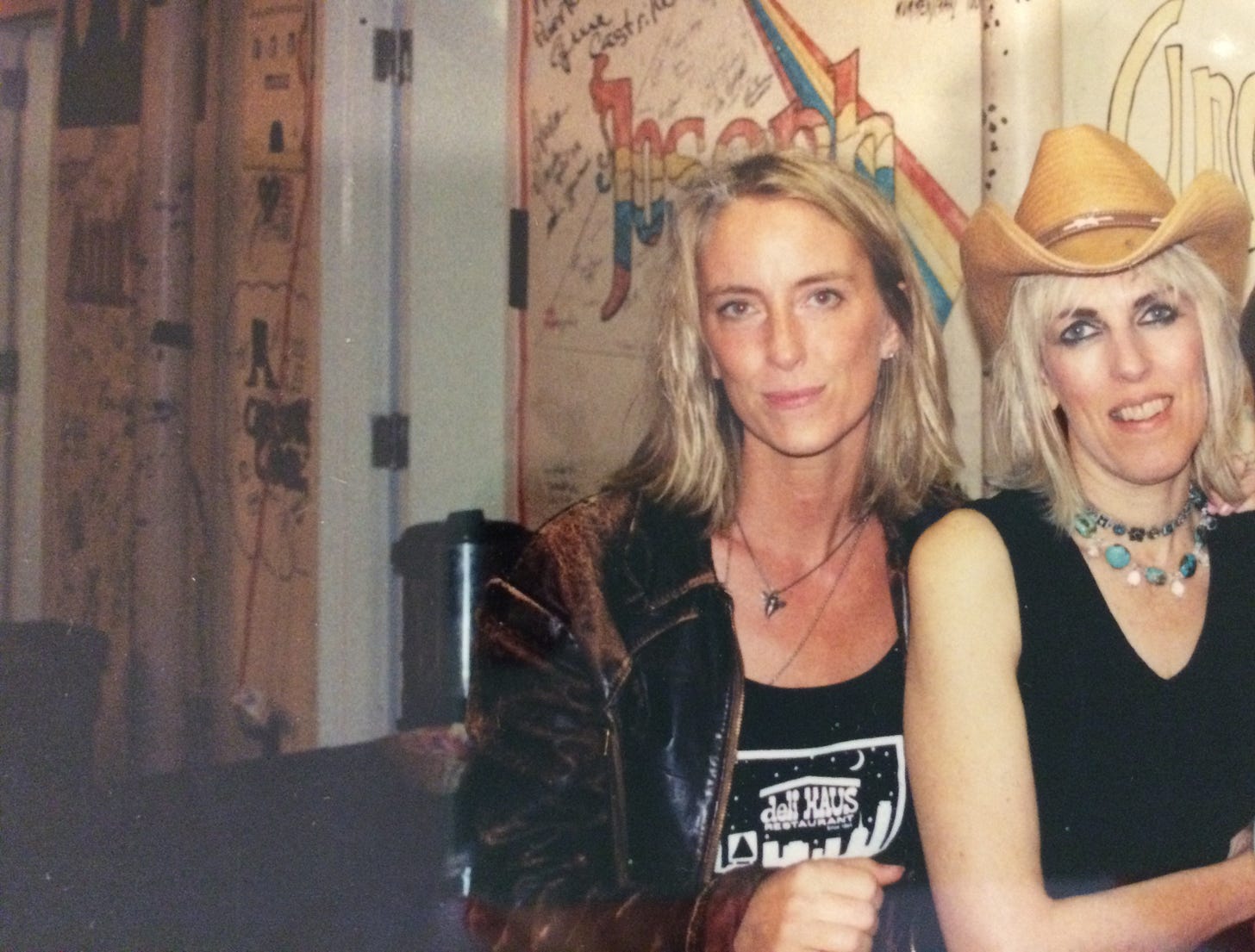
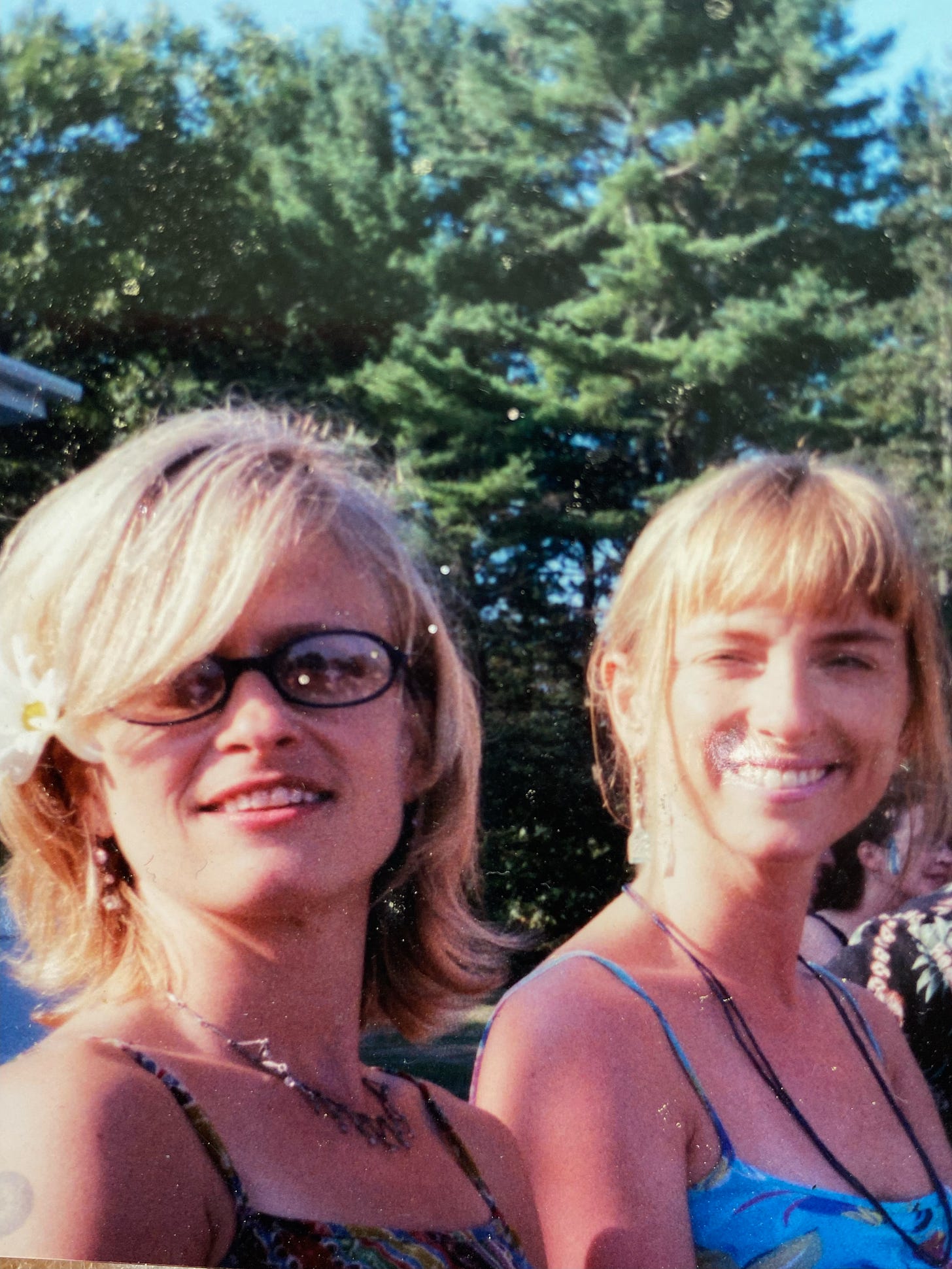

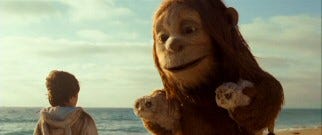
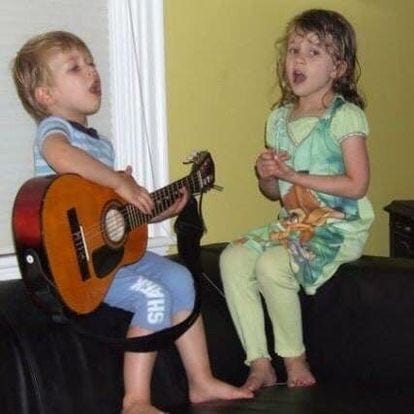
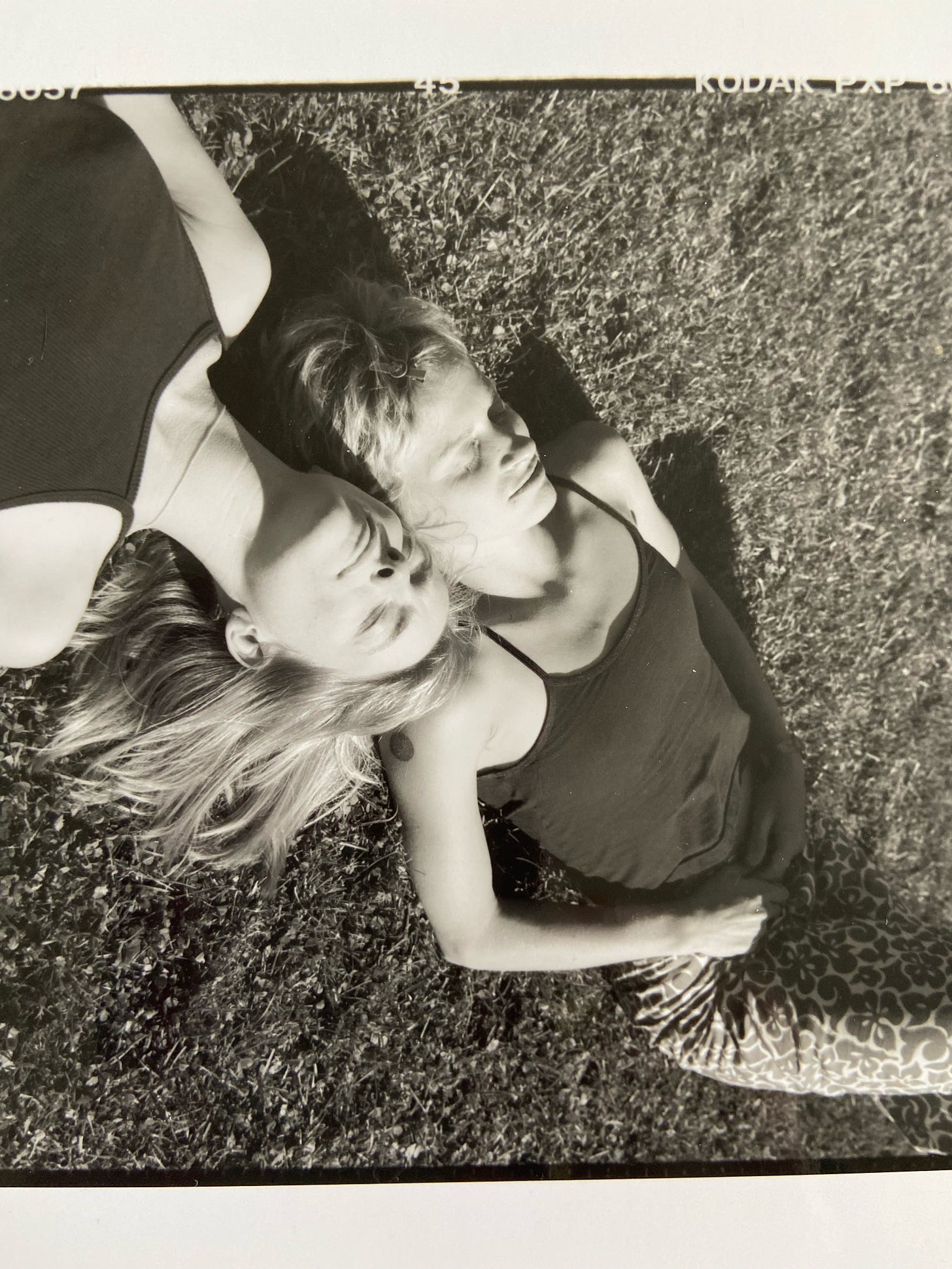
Spot on! The complicated nature of friendships that are more like marriage, the spaciousness in oneself to recognize and celebrate another’s joy as your own, and capturing that tumultuous time of 2001. The Franc- Lucinda show, 9/11, John’s passing and Abby (and Spencer’s!) births was a crazy time. Thank you!
Thank you, Karen, for writing all this. Love your memories, what you cling to and what you let go. I had my own memories from New Haven and that special night for Franc as I listened to Lucinda, diminished but still herself. I was feeling the rhythm of a cycle that never stops in the same place. 2001 was one of those chapter-years that changed the world abruptly, wrenching, making us face cruel losses. Glenda